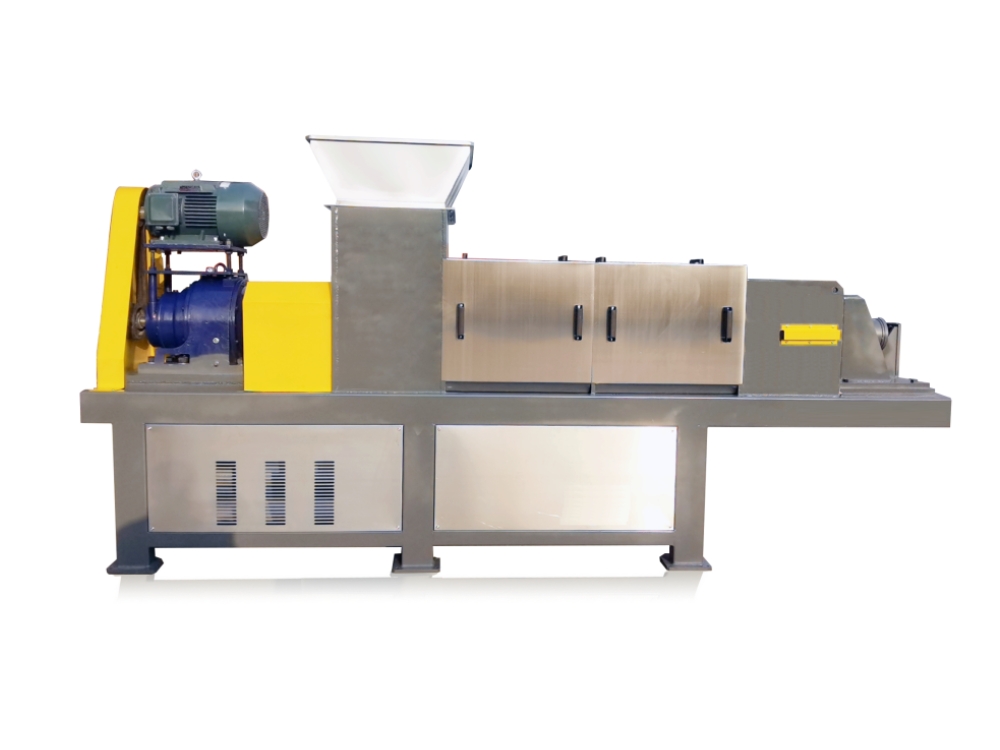
Introduction:
In recent years, the growing awareness of environmental sustainability has prompted industries to seek efficient solutions for managing organic waste, particularly residues from fruit and vegetable processing. One such innovative technology gaining prominence is the Fruit and Vegetable Residues Dewatering Screw Press. This article explores the features, benefits, and applications of this cutting-edge equipment in the context of sustainable waste management.
Features of the Dewatering Screw Press:
High Efficiency:
The dewatering screw press is designed for optimal efficiency in separating liquid from solid residues. Its robust construction and advanced engineering ensure a high level of dewatering performance.
Versatility:
This equipment is adaptable to a wide range of fruit and vegetable residues, accommodating varying sizes and compositions. From pomace in juice extraction to vegetable peels in processing plants, the screw press proves versatile in handling diverse organic waste streams.
Continuous Operation:
Unlike traditional methods, the screw press enables continuous dewatering, enhancing productivity and minimizing downtime. This feature makes it suitable for large-scale industrial applications.
Minimal Energy Consumption:
With an emphasis on sustainability, the dewatering screw press is designed to operate with minimal energy consumption. This not only reduces operational costs but also aligns with the global drive towards energy-efficient practices.
Benefits of Using Dewatering Screw Press for Fruit and Vegetable Residues:
Resource Recovery:
By efficiently separating water from organic residues, the screw press facilitates resource recovery. The extracted water can be reused within the processing facility, reducing the overall environmental impact.
Reduced Waste Volume:
Dewatering significantly reduces the volume of organic waste, easing the burden on waste management systems. This is particularly crucial in regions where landfill space is limited, emphasizing the role of the screw press in promoting sustainable waste practices.
Production of High-Quality By-Products:
The dewatered solid residues obtained from the press can be repurposed into valuable by-products such as organic fertilizers or animal feed. This adds an economic dimension to waste management, turning a potential environmental liability into a resource.
Applications:
The Fruit and Vegetable Residues Dewatering Screw Press finds applications in various industries, including:
Juice and Beverage Processing:
Efficiently handling pomace generated during juice extraction processes.
Food Processing Plants:
Managing peels, pulps, and other organic residues from vegetable processing.
Waste Treatment Facilities:
Integrating into waste treatment systems to dewater organic sludge.
Conclusion:
The utilization of the Fruit and Vegetable Residues Dewatering Screw Press represents a significant leap forward in sustainable waste management practices. Its efficiency, versatility, and environmental benefits position it as a valuable tool for industries seeking to minimize their ecological footprint while extracting value from organic residues. As the world continues its pursuit of a greener future, innovations like the dewatering screw press play a pivotal role in achieving a more sustainable and circular economy.

 TEL:+86 15336363999
TEL:+86 15336363999
 WeChat:gongchris1111
WeChat:gongchris1111
 ADD:Fangzi District, Weifang City, Shandong Province, China
ADD:Fangzi District, Weifang City, Shandong Province, China